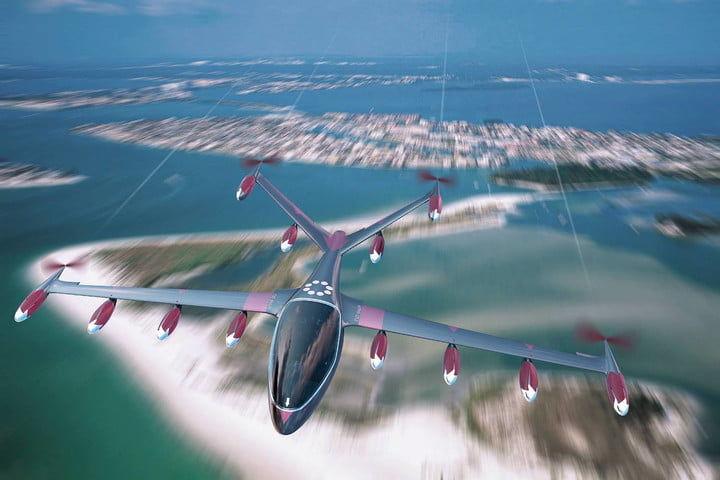
Proving the Pentagon is not immune to the buzz around electric vertical-takeoff-and-landing (eVTOL) aircraft, the U.S. Air Force is seeking information on commercial vehicles that could potentially be procured and fielded within three years.
The Air Force’s intent, according to a request for information (RFI), would be to capitalize on commercial investments already being made in developing these vehicles and help accelerate their maturation through a series of test and development campaigns.
These events would allow vehicle developers access to Defense Department test infrastructure and ranges so they can move their designs toward FAA approval. This could create long-term procurement options for military use-cases before commercial certification, the RFI says.
The vehicles could have potential capabilities for distributed logistics, sustainment and maneuver, “with particular utility in civil and military disaster relief, medical evacuation, firefighting, installation and border security, search and rescue, and humanitarian operations,” the RFI says.
The Air Force is seeking information on electric, hybrid-electric and non-electric aircraft with a maximum takeoff weight greater than 1,320 lb., for manned, optionally manned and unmanned personnel and cargo transport. “Our focus in this RFI is on vehicles with significant commercial potential,” it says.
According to the RFI, the information gathered will be used to shape a strategy to collaborate with vehicle developers to accelerate commercial availability. “As these systems mature toward certified commercial operations, the Air Force will position itself to be an early adopter,” it says.
Several vehicles are already under commercial development ranging from multicopters able to carry two people 22 mi. at 95 mph to winged eVTOLs designed to carry five people 185 mi. and 185 mph.
In January 2017, eVTOL startups Joby Aviation and Kitty Hawk were awarded contracts by the Defense Innovation Unit (DIU) for the Personal Aerial Vehicle project. Joby is aiming to begin commercial service in 2023, and its contract had a potential value of almost $9 million through fiscal 2019.
The DUI said the project would provide small aircraft that “offer a niche capability for specific tactical applications with a low acoustic signature, near instantaneous start/stop, ability to spread an assault force across multiple vehicles, and automated systems for more accurate navigation and landings.”

Comments
Incidentally, in the last paragraph, should "DUI" be "DIU"?